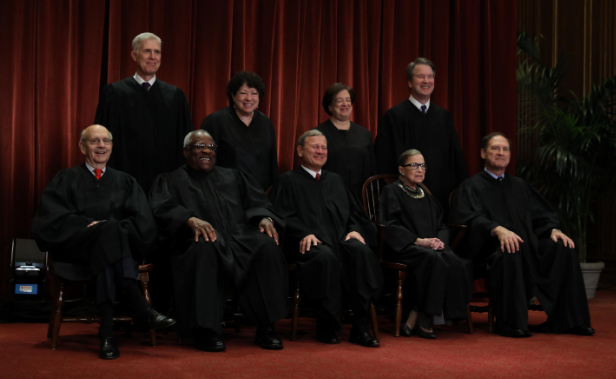In a dramatic end to its 2024-2025 term, the Supreme Court handed former President Donald Trump a sweeping legal victory, fundamentally altering the landscape of executive power and judicial oversight. In a 6-3 decision, the Court sharply curtailed the ability of federal judges to issue nationwide injunctions—rulings that have long been used to block presidential policies across the country—delivering Trump and his allies a win that surpasses even their own expectations.

For years, Trump’s most ambitious executive actions, from immigration crackdowns to sweeping regulatory changes, have been stymied by judges issuing nationwide injunctions at the request of advocacy groups and Democratic-led states. These legal tools became a hallmark of resistance during Trump’s presidency and beyond, allowing a single district court to halt federal policies for everyone, not just the plaintiffs in a case.
Friday’s ruling changes that dynamic. The Court declared that, except in rare class-action cases, judges may grant relief only to the parties before them. The immediate effect: opponents can no longer use a single lawsuit to freeze federal policies nationwide, forcing them to fight legal battles jurisdiction by jurisdiction.
Trump, who has made the fight against what he calls “activist judges” a central theme, celebrated the decision as a vindication of his approach. “For years, the radical left tried to stop us in the courts. They thought they could shut us down and silence the American people with one judge in one city,” Trump said in a statement. “Today’s decision proves our movement is stronger than ever.”
The case at the center of the ruling involved Trump’s controversial executive order seeking to end birthright citizenship for children born in the U.S. to non-citizens or temporary visa holders. While the Court did not rule on the constitutionality of the order itself, it made it far more difficult for opponents to block it nationwide. The order remains blocked for at least 30 days as litigation continues, but the legal path forward for challengers is now steeper than ever.
Legal analysts say the decision marks a seismic shift in the balance of power, tilting it toward the executive branch. “This is a game-changer,” said one constitutional scholar. “It means presidents—especially those with a bold agenda—will have a much freer hand to enact their policies, at least initially.”
The ruling is just the latest in a string of high-profile wins for Trump and his supporters. In addition to the nationwide injunction decision, the Court also sided with conservatives on parental rights in education, upholding the ability of parents to opt their children out of lessons that conflict with their religious beliefs, including LGBTQ-themed materials. The Court further upheld a Texas law requiring age verification for online sexual content, another policy strongly backed by Trump’s base.
Democratic leaders and civil rights groups, meanwhile, decried the decisions as dangerous overreaches that erode crucial checks on presidential power and threaten the rights of vulnerable communities. The ACLU and others have already vowed to pursue new legal strategies, including class-action lawsuits, to continue their opposition.
But for Trump and his allies, Friday’s rulings are a resounding affirmation of their approach—proof, they say, that their track record of legal victories is larger and more consequential than critics ever imagined.
No Comments Yet...